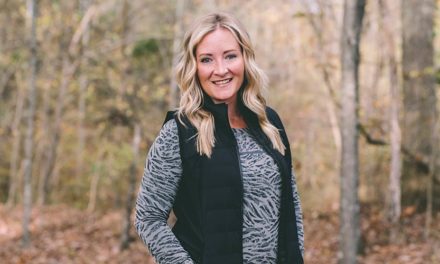On the outside looking in, 27-year-old Danielle Ballard “has it all together.” She’s a respiratory therapist student and the mother of two young children. However, her journey getting to this point hasn’t been easy. For 22 years, Danielle has suffered from eating disorders—the mental illness with the highest mortality rate.
Danielle started feeling insecure about her body image and became preoccupied with food at only five years old. Despite struggling with anorexia and bulimia throughout childhood and as a teen, Danielle did not seek help until she was an adult. From ages 20-25, she attended eight treatment centers, including residential facilities, partial-hospitalizations, and outpatient programs.
The consequences of her eating disorder have manifested as many health problems. Both of her pregnancies were high-risk because of her lowered immune system. At one point, her kidneys threatened to shut down and her heart stopped twice. Due to severe malnourishment, she was unable to walk and had been connected to feeding tubes on four occasions. Hair loss, amenorrhea (the loss of a menstrual cycle), thinning bones, and even memory loss were also caused by her illness.
Although looking in the past is painful, Danielle is determined to share her story and what she’s learned to help other people. “When I was a new, single mom, I realized I couldn’t live this way if I want custody of my kids. I want to see my daughter get married and my son graduate… I want to see my kids grow up.” This was a turning point in her recovery. “I wanted to live without worrying about dying or not.”
During her time at treatment centers, Danielle learned intuitive eating, understating that there’s no such thing as “good” and “bad” food. More importantly, she realized her body could recover. Her treatment was also an opportunity to form relationships.
“These are the friendships that have lasted longer than others,” she says, “These people have seen your darkest, worst moments, and they don’t judge you for it. They love you for who you are and not the number on a scale.”
Danielle works every day to stay on track with her recovery. Communicating regularly with her therapist and dietician and setting reminders to eat on her phone are some of her best coping skills. She maintains body image as a positive subject around her kids so that they grow self confidence and have a healthy relationship with food.
Danielle has also built a good relationship with exercise. “I’ve learned how to do it the right way and in moderation. I’ve learned not to push myself past my limit,” she says. After years of health issues, getting to use her body is a gift. She limits herself to light exercise and yoga to avoid being triggered.
In order to make an impact on those with eating disorders, Danielle is coordinating the 2018 Memphis NEDA (National Eating Disorder Association) Walk, set for September 22, which aims to educate about eating disorders, celebrate recovery, and raise money for research and treatment.
“Sadly, treatment is very expensive, and that’s why many people never get help. One night at an inpatient facility is easily $500. Insurance only covers some of that and stops the moment you reach a stable weight even though your recovery is far from over.” The NEDA Walk aims to raise $10,000, which will become a scholarship for those who need treatment.
By: Susanna Lancaster







